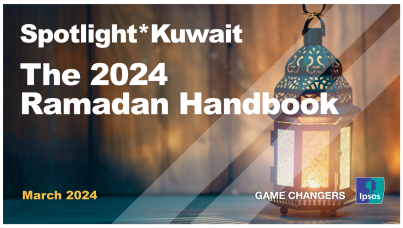Global consumer sentiment continues inching up
At 41.8, the Global Consumer Confidence Index is up slightly over last month (41.4). September is the third consecutive month showing gains-in consumer sentiment at the global level after bottoming out in June. However, the index remains 6.8 points lower than its pre-pandemic level recorded in January and nearly five points lower than its historic average spanning over 10 years.
The Global Consumer Confidence Index is the average of each of the 24 world markets’ National Indices. It is based on a monthly survey of more than 17,500 adults under the age of 75 conducted on Ipsos’ Global Advisor online platform.
This month, five countries show significant growth (1.5 points or more) in their National Index: Sweden (+2.3), Brazil (+1.8), Russia (+1.6), Mexico (+1.5), and Japan (+1.5). Sweden and Russia have shown significant gains in each of the past three months, while Brazil has seen significant growth in the past two.
China (-2.0) and South Korea (-1.8) are the only countries showing significant drops in their National Index this month. Despite this month’s decrease, China’s National Index (70.9) remains higher than it was pre-pandemic and higher than that of any other country surveyed. In contrast, at 35.8, South Korea’s National Index is lower than it’s ever been in the past 10 years.
National Index Trends
Compared to January, every single country’s National Index is down except for China’s (+1.3). The National Index of five countries (Israel, Mexico, the U.S., India, and South Africa) is down by over 10 points vs. January and that of eleven other countries is down by five to 10 points.
- While 11 of the 24 countries surveyed had a National Index higher than 50 back in January, this is now the case of only four countries: China (70.9), Saudi Arabia (57.6), Sweden (53.7), and Germany (50.4).
- At the other end of the spectrum, six countries now have a National index at 35 or below, compared to just one (Turkey) in January: South Africa (29.4), Turkey (33.2), Spain (33.7), Japan (34.6), Israel (34.6) and Argentina (35.0). However, none of these countries are seeing a significant drop in their National Index vs. last month and one is seeing a significant increase (Japan, +1.5).
Expectations, Jobs, and Investment Index Trends
At a global level, each of the Jobs Index (+0.4), the Expectations Index (+0.3), and the Investment Index (+0.6) shows a small growth over the last month.
- The Jobs Index, indicative of confidence in job security and the employment outlook (47.6 globally), is showing significant gains in five countries (compared to nine last month, six in July, and none in June). It is down significantly in only two countries, continuing a trend (it was down in 14 countries in June, five in July, and four in August).
- The Expectations Index, reflective of consumers’ outlook on their local economy, financial situation, and employment (52.6 globally), is up significantly in six countries (compared to 11 countries in August).
- The Investment Index, indicative of the investment climate (35.6 globally) is up significantly in six countries, including Brazil and Germany for the second month in a row. It is down significantly only in China (-2.6) and South Korea (-1.7). For comparison, the Investment Index showed significant drops from May to June in as many as 15 countries.
Visit our interactive portal, Consolidated Economic Indicators (IpsosGlobal Indicators.com) for graphic comparisons and trended data pertaining to the Ipsos Global Consumer Confidence Index and sub-indices—and all the questions on which they are based.



